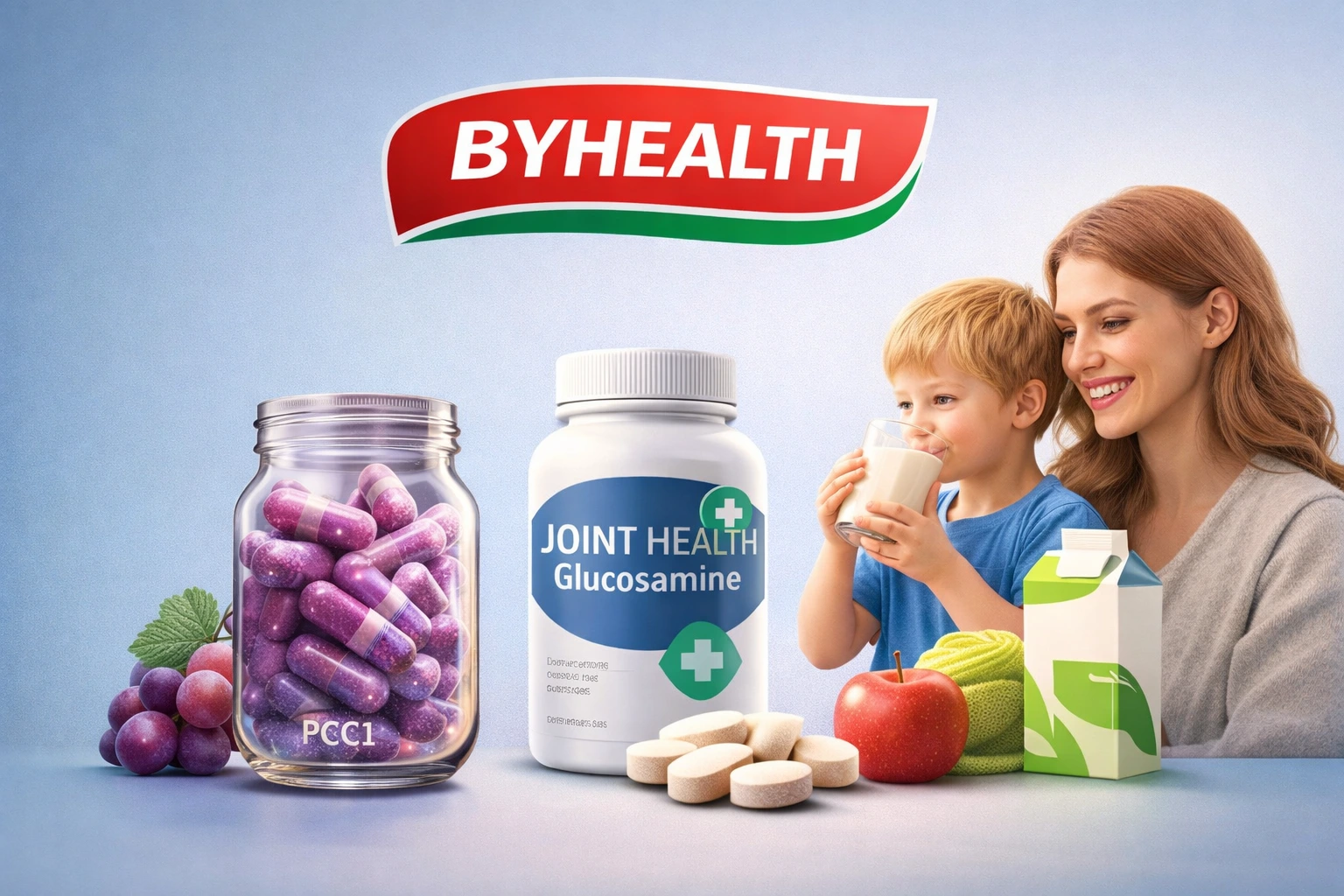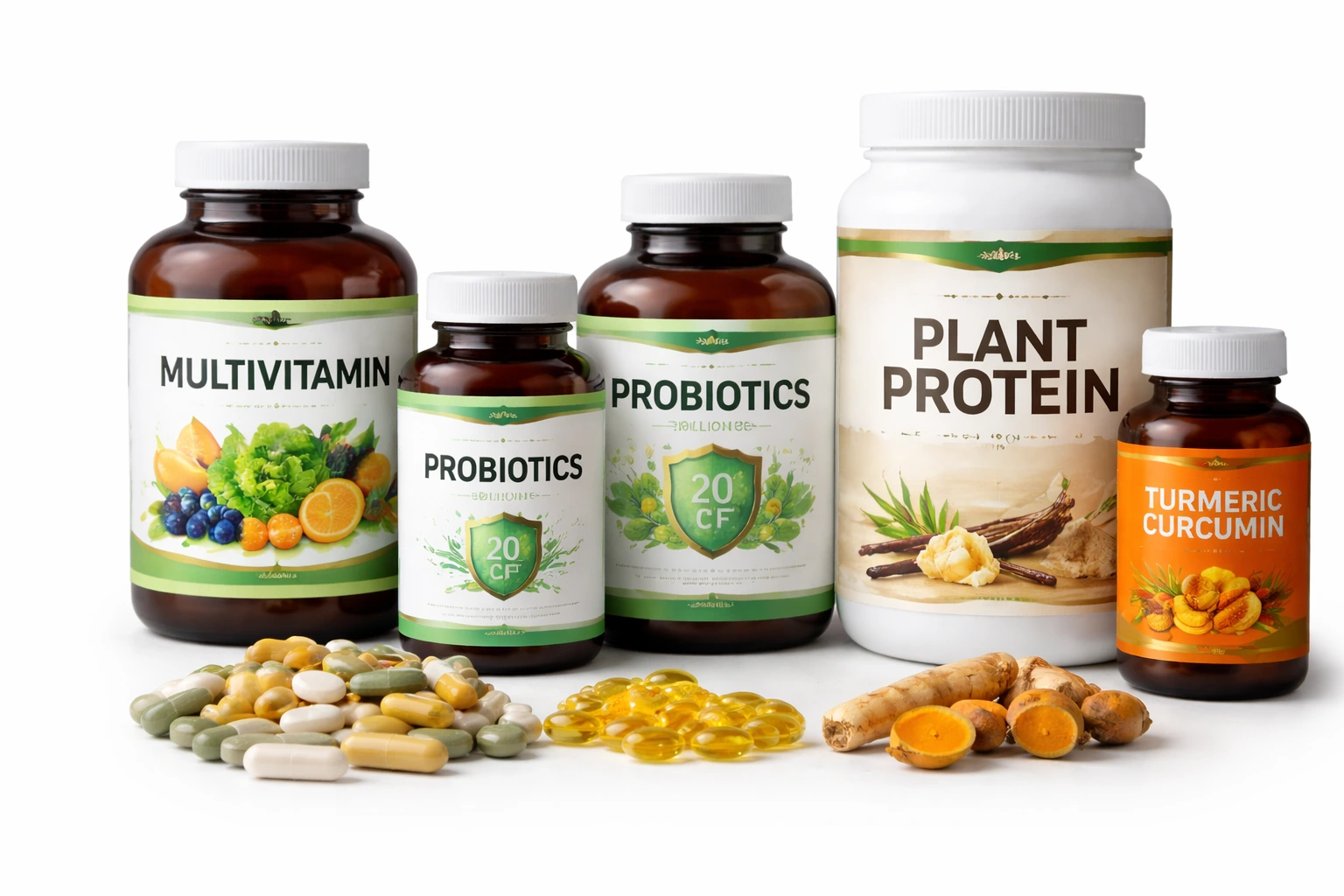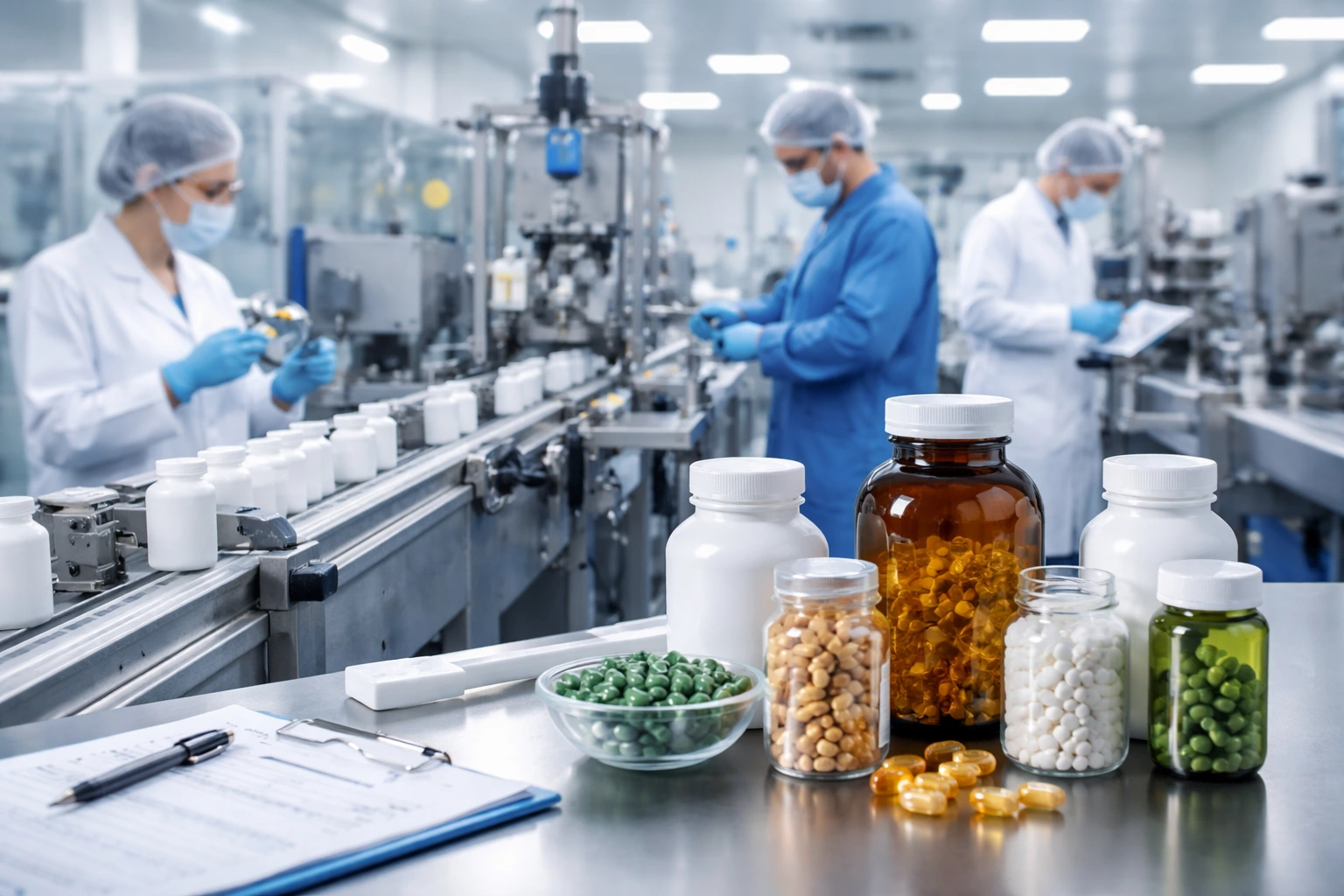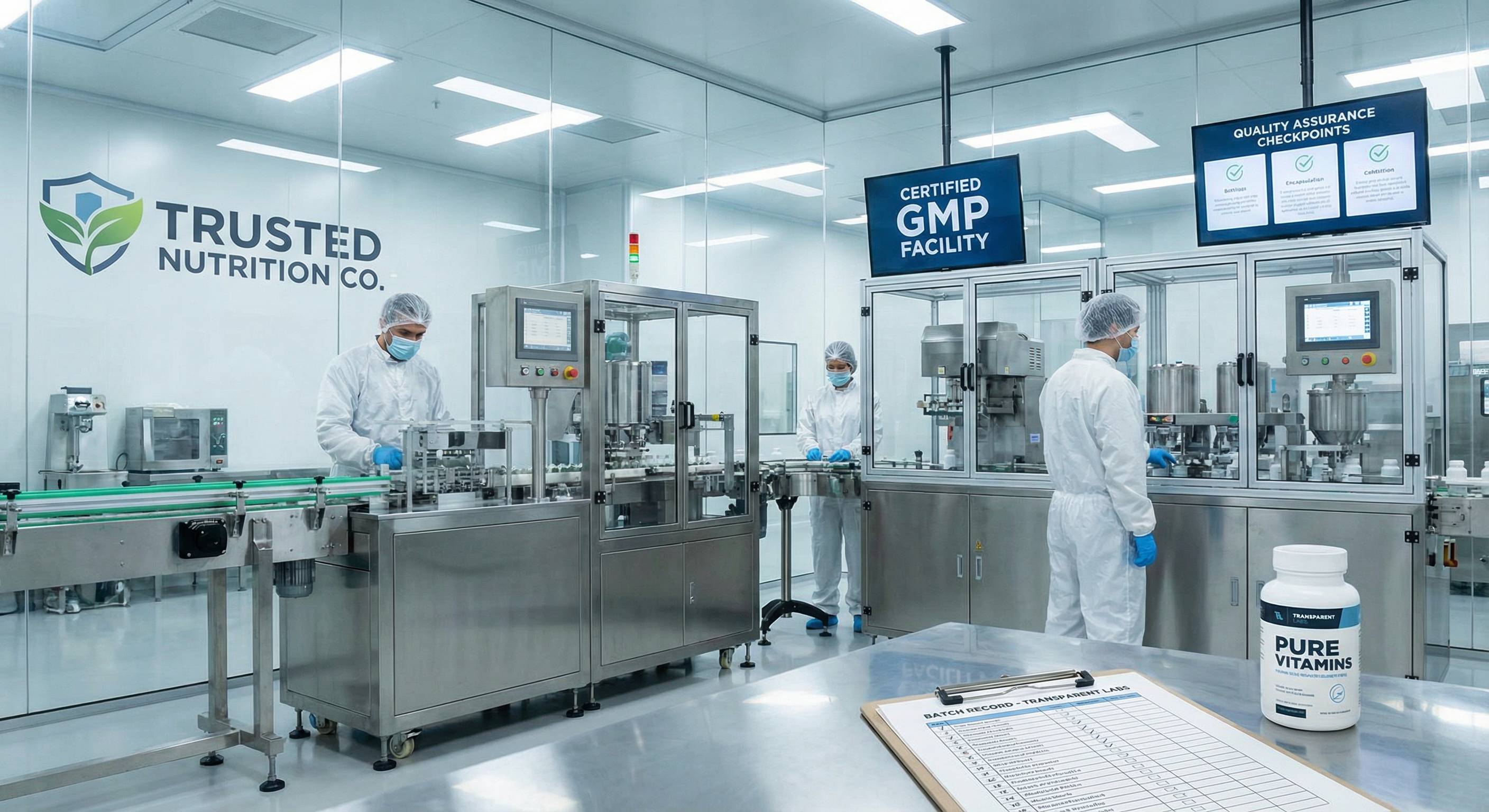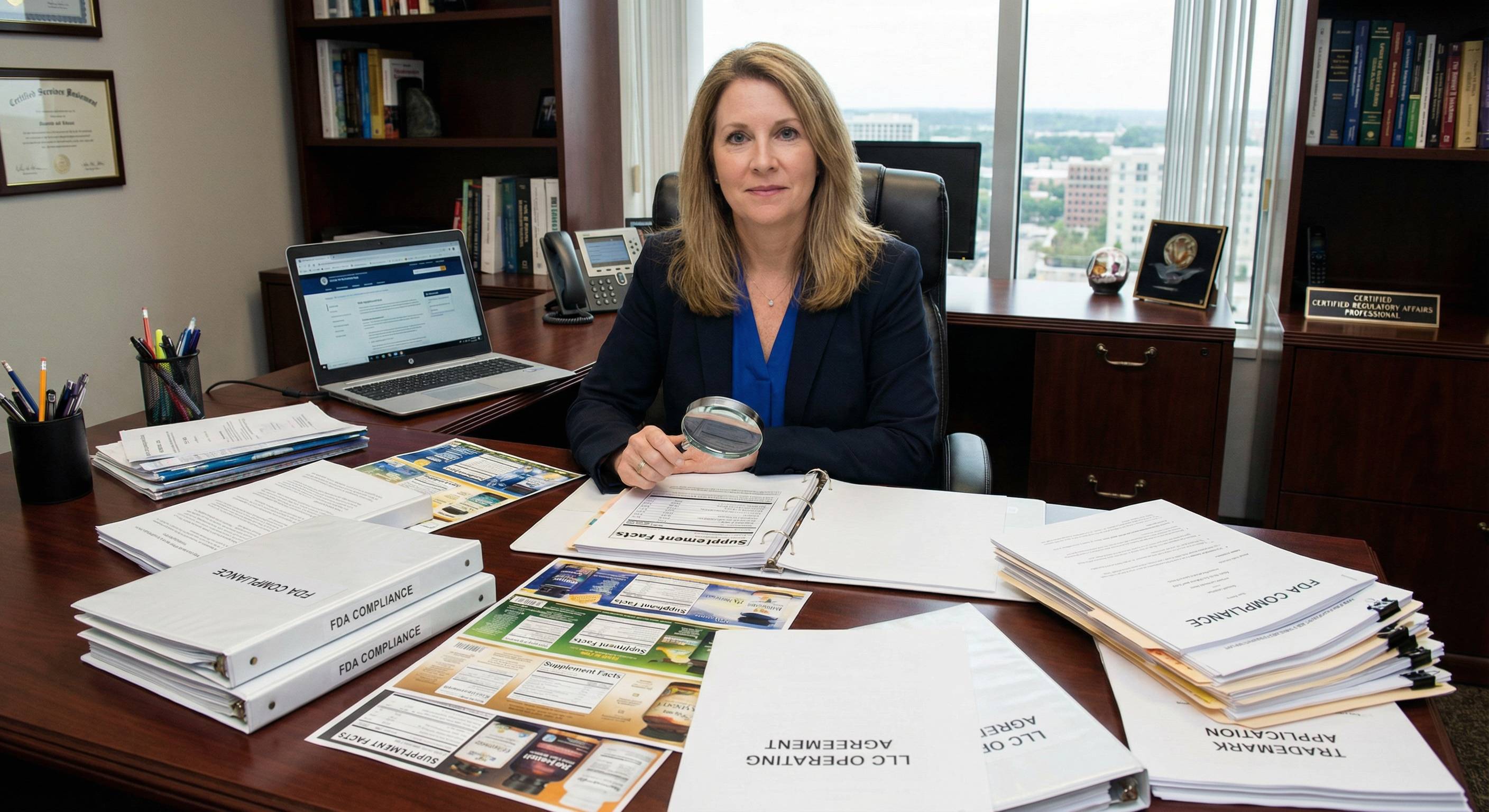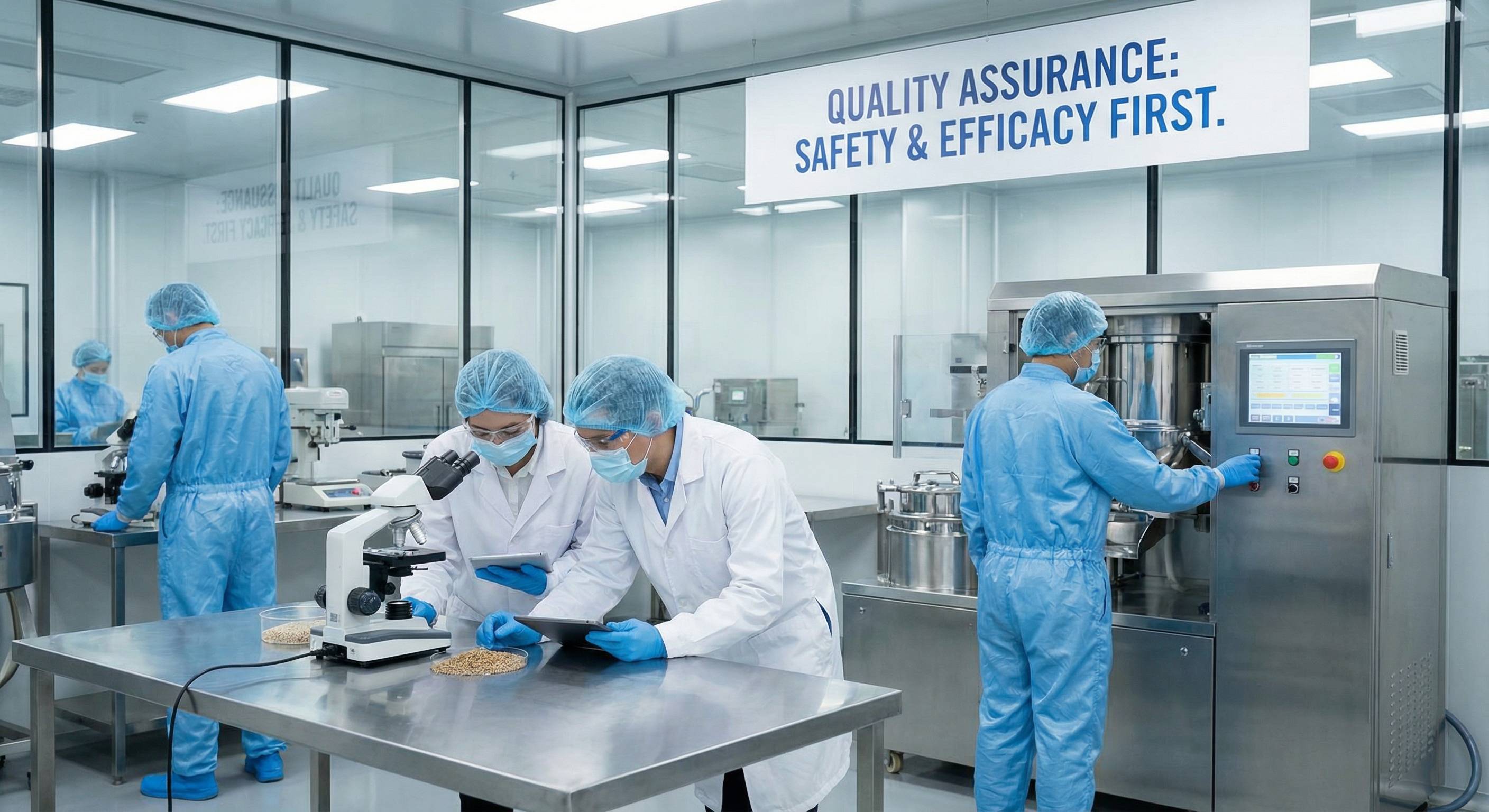Ordering supplements—or raw supplement ingredients—from China can be safe, profitable, and reliable, but it is not automatically safe. Safety depends on how the buyer structures the relationship and controls the supply chain. When buying from China, the risk profile is not a single binary; it’s a set of areas that must be intentionally managed: supplier qualification, documented quality systems, regulatory alignment with your target market, independent testing, packaging and transport design, and post-market vigilance. If those systems are in place, many reputable brands source successfully from China. If they are not, problems can be expensive and reputation-damaging.
This article explains the full picture: why China is a major player, what advantages it offers, the common quality and regulatory risks, and exactly what controls importers, brand owners, and distributors must put in place to mitigate risk and operate legally.
Why China is a major supplier for supplements
Several structural reasons explain why so many companies source supplements or ingredients from China:
-
Scale and vertical integration. For many botanicals, fermentation-derived actives, vitamins and amino acids, China has complete upstream and downstream networks — growers, processors, extractors, and formulators — often clustered by province. That verticality allows lower costs and shorter lead times for complex supply chains.
-
Manufacturing capacity and variety. Chinese factories commonly operate multiple production lines (powders, capsules, softgels, gummies, sachets, liquids) and have experience with high-volume, multi-SKU runs as well as private-label work.
-
Cost competitiveness. Lower labor, utilities, and local material costs make production cost-effective while delivering margins that enable competitive pricing in export markets.
-
Technical expertise in certain ingredients. Some ingredients or extraction methods (specific herb extracts, fermentation processes for specialty amino acids, industrial production of some probiotics) are more mature in China than in other regions.
-
Export infrastructure and services. Well-developed logistics, export documentation services, and experience with international clients streamline cross-border shipping.
All those advantages explain why many legitimate, global supplement brands use qualified Chinese suppliers for parts of their portfolio.
Typical benefits when sourcing responsibly
If handled correctly, sourcing from China can yield practical business benefits:
-
Lower cost of goods without necessarily sacrificing quality (provided quality controls are enforced).
-
Faster access to specialty raw materials and bespoke extracts.
-
Greater flexibility for private label or white-label ranges (small pilot lots through to large runs).
-
Access to contract manufacturing services (OEM/ODM) that include formula development, filling, and packaging.
Those outcomes depend on structured vendor management, not on informal transactions or one-time spot buys.
The top risks you must manage
These are the practical, recurring hazards that cause most problems when companies source supplements from China:
-
Quality inconsistency. Batches may vary in active content, microbial load, or physical properties (particle size, solubility). Small factories may lack robust in-process controls.
-
Contaminants and adulterants. Heavy metals, pesticides, mycotoxins, and deliberate adulteration with pharmaceutical actives have been documented in many supply ecosystems (not unique to China). Controls must be in place to prevent these hazards.
-
Falsified or inflated Certificates of Analysis (COAs). COAs provided by suppliers are useful but not infallible. Third-party verification is essential.
-
Regulatory mismatch. A product or label that is legal in China may be illegal in your target market (e.g., ingredient permission lists, permitted health claims, format of Supplement Facts).
-
Supply-chain opacity and traceability gaps. If raw material origins are unclear, recalls and root-cause investigations become much harder.
-
Logistics and stability issues. Temperature, humidity, and transit duration can degrade sensitive ingredients (probiotics, enzymes, omega-3 powders).
-
Counterfeit or grey-market goods. Buying through non-verified middlemen or marketplace sellers increases risk of counterfeit product.
-
Documentation and records gaps. Inadequate batch records, missing retained samples, or poor CAPA processes hamper compliance with regulators such as the U.S. FDA.
Regulatory reality that importers must accept
If your target market is the United States (the examples scale to other markets too), there are a few rules that fundamentally shape what you must do:
-
Supplements are not "pre-approved" by FDA. The FDA does not pre-approve dietary supplements for safety and efficacy the way it does drugs. However, brands and importers are legally responsible for product safety, accurate labeling, and manufacturing controls.
-
cGMP (21 CFR Part 111) applies. Current Good Manufacturing Practices for dietary supplements require documented controls for production, packaging, laboratory testing, master and batch records, equipment calibration, sanitation, and retained samples. Whether a product was manufactured domestically or abroad, the importer/brand needs to ensure the finished product and processes align with Part 111 expectations.
-
FSVP (Foreign Supplier Verification Program) under FSMA. U.S. importers must have an FSVP that documents hazard analysis and verification activities for each supplier: audits, testing, review of suppliers’ food safety programs, or other verification measures. This is not optional—border control can require documentation.
-
NDI (New Dietary Ingredient) notifications. If the product contains an ingredient not marketed in the U.S. before October 15, 1994, an NDI filing is typically required; the FDA expects safety substantiation.
-
Labeling rules and claim limits. U.S. dietary supplement labels must use Supplement Facts format, include required declarations (ingredients, allergens) and cannot claim to diagnose, treat, cure, or prevent disease. Structure-function claims require truthful basis and a disclaimer.
If you sell into other jurisdictions, substitute relevant regulations: EFSA and Novel Food rules in the EU, TGA in Australia, or country-specific health food regimes (e.g., China’s own NMPA/SAMR categories). The key point is: you must design your sourcing and QA program so your imported product satisfies the rules of the destination market.
Types of Chinese suppliers and how risk differs
Understanding the supplier landscape helps determine due-diligence intensity and verification activities:
-
Large, export-oriented OEM/ODM factories. These are often the safest option. They typically have structured QC labs, documented SOPs, export experience, and established relationships with multinational clients. Audits and COAs are easier to validate.
-
Specialized extractors/processors. These firms concentrate on a botanical or extraction technology. They can be high quality, but because they deliver intermediates rather than finished dosage forms, your downstream control over blending and stability needs are crucial.
-
Smaller local workshops. These can be agile and low cost, but they may lack formal testing, documentation, and segregation controls. They require high audit intensity and frequently third-party oversight.
-
Trading companies and brokers. They provide sourcing convenience, but introduce opacity: product may come from different factories, COAs may be aggregated, and traceability is weakened. Use only with strict contractual guarantees and testing.
-
Market sellers and platform vendors. These should generally be avoided for brand supply because of counterfeit and packaging authenticity risks.
High-level due-diligence steps every buyer should take
Before a first order, perform these controls:
-
Request and independently verify COAs for multiple recent lots. Do not rely solely on supplier-issued COAs; send samples to an accredited third-party lab for confirmation (identity, potency, micro, heavy metals, pesticides, mycotoxins, solvents).
-
Review batch production records and retained sample policies. Ask for template BPR/MMR and examples of retained sample envelopes.
-
Evaluate the supplier’s quality system. Request documented SOPs, calibrated equipment logs, environmental monitoring records (for powders: dust control, cross-contamination measures; for probiotics: cleanroom and cold chain).
-
Audit the factory or commission third-party audits. For critical suppliers, perform on-site audits focusing on CAPA, change control, personnel training, cleaning validation, and supplier raw-material controls. If travel is difficult, remote audits with live video and document walkthroughs are acceptable as interim verification.
-
Sign a detailed Quality Agreement. This should allocate responsibilities (testing, release, recall handling), specify specs and methods, set dispute resolution, and describe pricing for out-of-spec events.
-
Define a robust testing plan for incoming shipments. Decide lot-release testing frequency (e.g., 100% micro + heavy metals for botanicals, or randomized third-party testing every X lots).
-
Confirm logistics & packaging specs. Specify moisture barriers, nitrogen flush, desiccants, and transport temperature requirements where relevant.
-
Check regulatory alignment. Ensure the supplier understands your target market’s labeling, permissible ingredients, and claim rules.
Quality Standards and Regulatory Landscape in China
When asking whether it is safe to order supplements from China, one of the most critical factors to evaluate is the regulatory framework that governs dietary supplements in the country. Unlike the United States, where supplements are regulated by the FDA under the Dietary Supplement Health and Education Act (DSHEA), China has its own set of rules and administrative agencies that monitor production, labeling, and safety standards.
Key Regulatory Authorities
-
National Medical Products Administration (NMPA)
The NMPA, formerly known as the China Food and Drug Administration (CFDA), is the primary authority responsible for supervising dietary supplements and health products in China. The agency sets guidelines on manufacturing, testing, and marketing. -
State Administration for Market Regulation (SAMR)
SAMR works alongside NMPA and plays a crucial role in overseeing business licensing, product labeling, and compliance with advertising laws. -
General Administration of Customs of China (GACC)
This agency ensures that exported goods meet international requirements and that imports comply with Chinese regulations.
Classification of Supplements in China
China classifies dietary supplements under two major categories:
-
Health Foods (保健食品): These products are designed to support specific health functions, such as improving immunity, aiding digestion, or supplementing vitamins and minerals. They must go through a registration process with the NMPA before entering the market.
-
General Foods with Functional Claims: Certain products, such as fortified beverages or snacks, can make limited health-related claims but are regulated more like traditional foods.
Product Registration and Filing Process
Before a supplement can be sold domestically or exported from China, it often needs to go through a filing or registration procedure depending on the type of ingredients used. For example:
-
Supplements using new dietary ingredients must undergo stricter safety evaluation.
-
Products with ingredients already on China’s “Health Food Raw Material Directory” may go through a simplified filing process.
This system creates a tiered regulatory environment that ensures a higher level of safety for products intended for both domestic and international markets.
GMP and Quality Standards
Another important aspect is the adherence to Good Manufacturing Practices (GMP). Many Chinese manufacturers operate GMP-certified facilities, which are inspected by local authorities and often audited by third-party organizations. Some factories also obtain ISO, HACCP, or NSF certifications, which further strengthen their credibility in international trade.
These certifications are vital indicators for buyers who are concerned about product safety, as they show that the manufacturer follows globally recognized standards in hygiene, traceability, and quality control.
Comparison with International Standards
While Chinese regulations are improving rapidly, they are not always perfectly aligned with those in Europe or North America. For example:
-
Certain herbal ingredients that are widely accepted in China may face restrictions in Western countries.
-
Labeling requirements differ, especially concerning claims about disease prevention or treatment.
-
Testing protocols may vary, which means foreign buyers often request third-party laboratory analysis before finalizing bulk orders.
In conclusion, the Chinese supplement industry is subject to increasingly strict regulations and oversight. The safety of ordering supplements from China largely depends on whether the supplier complies with these standards and whether the buyer conducts adequate due diligence.
Regulatory Frameworks: How China Oversees Supplement Manufacturing
When evaluating whether it is safe to order supplements from China, one of the most critical aspects to examine is China’s regulatory system. Dietary supplements in China are primarily governed by the National Medical Products Administration (NMPA), which operates similarly to the U.S. Food and Drug Administration (FDA). The NMPA is responsible for evaluating product safety, labeling, and health claims.
Chinese regulations classify dietary supplements under the broader category of “health foods” (保健食品). To gain approval for manufacturing and distribution, companies must submit extensive documentation, including ingredient safety data, evidence of claimed benefits, and manufacturing process validation. Products are then required to carry a unique approval number, which consumers and importers can use to verify their authenticity.
In addition to NMPA oversight, many factories producing supplements for export are certified under Good Manufacturing Practices (GMP), ISO standards, or HACCP protocols. These frameworks ensure consistent quality control and safety in production. For international markets, many Chinese manufacturers also seek third-party certifications such as:
-
U.S. FDA registration (although FDA does not “approve” supplements, factories can register their facilities).
-
NSF International Certification, which validates GMP compliance.
-
Halal and Kosher certifications, catering to global dietary requirements.
-
Organic certification for plant-based ingredients.
For buyers, this means that not all supplements from China are created equal. Companies that work with certified and reputable manufacturers can generally trust that products meet global standards, while those sourcing from unverified suppliers may face higher risks.
Transparency and Traceability: Key Factors for Buyers
Another major factor influencing safety is supply chain transparency. In the past, some concerns about supplements from China stemmed from a lack of traceability — buyers were uncertain about ingredient origins, processing methods, or whether shortcuts were taken during production.
However, the industry has evolved significantly. Many leading Chinese supplement manufacturers now provide:
-
Full ingredient traceability reports, detailing sourcing locations and quality verification.
-
Certificates of Analysis (CoAs), issued by both in-house and third-party laboratories, verifying purity, potency, and safety.
-
QR code tracking systems, allowing buyers to scan and access product data in real-time.
-
Blockchain-based traceability solutions, increasingly adopted for global exports.
For international buyers, requesting these documents is not just a formality — it is an essential part of due diligence. Companies that cannot or will not provide detailed transparency documents should be treated with caution. On the other hand, those that do demonstrate traceability show a commitment to accountability and product integrity.
Common Concerns and Misconceptions About Chinese Supplements
The question “Is it safe to order supplements from China?” often arises because of misconceptions or isolated incidents that receive widespread media attention. Let’s break down some of the most common concerns:
a) Adulteration and Contamination Risks
Some buyers fear that Chinese supplements may contain unlisted ingredients, fillers, or contaminants such as heavy metals. While such risks exist in any global supply chain, they are not exclusive to China. In fact, many Chinese exporters voluntarily undergo stricter international testing than local regulations require, precisely to reassure global clients.
b) Intellectual Property Concerns
Another frequent worry is whether formulas or brand designs will be copied. While intellectual property enforcement in China has historically been weak, the Chinese government has tightened laws in recent years, and many professional manufacturers now sign legally binding non-disclosure agreements (NDAs) with foreign partners.
c) “Cheaper Means Unsafe” Fallacy
Some equate lower production costs in China with lower quality. This is misleading. Lower costs are often the result of economies of scale, access to raw materials, and efficient labor markets, not necessarily poor standards. High-quality, premium-grade supplements are produced in China every day — often by the same facilities that manufacture for global brands sold in the U.S. or Europe.
d) Media Bias and Outdated Perceptions
Media coverage tends to highlight negative cases while ignoring the large volume of safe, compliant products that are exported daily. This has led to persistent negative perceptions, even though many Chinese manufacturers now meet or exceed global quality standards.
How to Evaluate a Chinese Supplement Supplier
When considering whether to order supplements from China, the due diligence process cannot be overstated. Selecting the right supplier is one of the most effective ways to minimize risk and ensure product quality. Here are the key areas to evaluate:
1. Business Legitimacy
-
Verify the supplier’s business license and check whether they are officially registered in China.
-
Use directories such as Made-in-China, Alibaba Verified Suppliers, or independent third-party audits.
-
Look for established companies with at least 5–10 years of operational history in the supplement industry.
2. Certifications and Quality Management Systems
-
A trustworthy manufacturer should hold ISO 22000, HACCP, GMP (Good Manufacturing Practice), or FDA registration (for those exporting to the U.S.).
-
Request copies of certificates and confirm their validity with the issuing organizations.
-
Some leading companies may also have NSF, BRC, or Halal/Kosher certifications depending on their target markets.
3. Product Testing and Transparency
-
A reliable supplier will be willing to share Certificates of Analysis (COA) from accredited third-party labs.
-
Ask whether they can provide batch testing and heavy metal/microbial testing reports.
-
Transparency in ingredient sourcing is key—look for suppliers who can trace ingredients back to their raw material origin.
4. Communication and Responsiveness
-
Clear, prompt, and professional communication is often a reflection of how they handle business.
-
A good supplier should be able to explain their production process, lead times, and regulatory compliance without hesitation.
-
Be cautious of suppliers who overpromise or offer unusually low prices without proper documentation.
5. Factory Audits and On-Site Visits
-
If possible, conduct an on-site audit (directly or through a trusted third party).
-
Assess their production lines, cleanliness, and quality control measures.
-
Pay attention to whether they separate raw materials, semi-finished, and finished products properly to avoid cross-contamination.
Benefits of Ordering Supplements from China
Despite the risks, many companies choose China for supplement manufacturing due to the unique advantages the market offers. Some of the key benefits include:
1. Cost Efficiency
-
Manufacturing in China can reduce costs by 30–60% compared to Western facilities.
-
Lower costs of labor, raw materials, and infrastructure often translate into more competitive prices.
-
For startups or growing supplement brands, this cost advantage can make or break profitability.
2. Access to a Wide Range of Ingredients
-
China is one of the largest producers of herbal extracts and vitamins in the world.
-
Traditional Chinese Medicine (TCM) provides access to botanicals not widely available elsewhere, such as ginseng, astragalus, goji berry, and cordyceps.
-
Many nutraceutical companies in the West source their raw materials from China even if final manufacturing occurs locally.
3. Scalability and Production Capacity
-
Chinese manufacturers are equipped to handle large-volume orders with fast turnaround times.
-
Many facilities can also accommodate small batch runs for startups, providing flexibility.
-
This scalability makes it easier for brands to expand rapidly once they establish product-market fit.
4. OEM/ODM Services
-
Many Chinese supplement manufacturers specialize in OEM (private label) and ODM (original design manufacturing) services.
-
They offer ready-made formulations, packaging, and branding solutions, reducing time-to-market.
-
This service is especially valuable for companies entering the supplement space without deep R&D experience.
5. Innovation and Customization
-
Contrary to outdated perceptions, many Chinese firms invest heavily in nutritional science and R&D.
-
Some manufacturers work closely with international researchers to develop cutting-edge formulations, such as sustained-release capsules, vegan-friendly soft gels, or functional gummies.
Risks and Challenges of Ordering Supplements from China
Even with proper supplier selection, ordering supplements from China comes with inherent risks that must be actively managed. Understanding these challenges helps companies implement effective risk mitigation strategies.
a) Counterfeit and Substandard Products
Counterfeit or low-quality products are among the most frequently cited concerns. While high-quality manufacturers exist, the supplement market in China is large and diverse, with small, unverified workshops sometimes producing substandard goods. Common issues include:
-
Products containing incorrect ingredient concentrations or missing key actives.
-
Adulteration with pharmaceutical compounds or undeclared substances.
-
Poor manufacturing practices that result in microbial contamination or heavy metal presence.
Mitigation: Only work with certified factories with a proven track record and insist on third-party batch testing before shipment.
b) Regulatory Compliance Gaps
Even if a Chinese supplier produces a high-quality product domestically, it may not meet the regulatory requirements of the importing country. Potential issues include:
-
Ingredients that are not approved or restricted in your target market (e.g., certain herbal extracts).
-
Labeling discrepancies that violate FDA, EFSA, or other regulatory standards.
-
Claims that are acceptable in China but would be considered misleading or illegal elsewhere.
Mitigation: Provide suppliers with clear specifications based on your target market’s regulations and request regulatory alignment documents.
c) Supply Chain Transparency
Opaque supply chains can mask problems such as:
-
Substitution of cheaper raw materials without notification.
-
Multi-layer sourcing through brokers, reducing traceability.
-
Poor storage or handling that can degrade sensitive ingredients during transit.
Mitigation: Implement traceability systems (batch numbers, COAs, and origin documentation) and audit the supply chain periodically.
d) Shipping and Logistics Challenges
Long-distance shipments introduce risks for product stability:
-
Temperature-sensitive ingredients (e.g., probiotics, omega-3 oils) may degrade if not properly packed.
-
Delays at customs or improper documentation can invalidate insurance claims if products are damaged.
-
Freight handling issues, such as vibration or moisture, can affect powders, gummies, and capsules.
Mitigation: Specify packaging and storage requirements, use temperature-controlled shipping when needed, and work with reliable freight forwarders familiar with supplements.
e) Intellectual Property and Confidentiality Risks
Intellectual property concerns are valid, especially for proprietary formulations:
-
Some suppliers may unintentionally or deliberately share formulations with competitors.
-
Branding and label designs can be copied if proper legal protections are not in place.
Mitigation: Sign non-disclosure agreements (NDAs) and consider trademarking your formulations and brand in China before engaging suppliers.
f) Cultural and Communication Barriers
Misunderstandings due to language, cultural norms, or business practices can affect quality and delivery timelines:
-
Ambiguity in specifications can lead to incorrect ingredient sourcing.
-
Different interpretations of quality standards may result in variable outcomes.
Mitigation: Communicate clearly, use visual aids and samples, and consider hiring local sourcing agents with industry expertise.
Best Practices for Safe Sourcing from China
To maximize safety and minimize risk when ordering supplements from China, companies should adopt a structured, multi-layered approach:
-
Supplier Verification: Confirm business license, certifications, and export history.
-
Quality Agreements: Define responsibilities for testing, recalls, and product specifications.
-
Third-Party Testing: Conduct independent lab analysis for potency, contaminants, and identity.
-
Regular Audits: Perform scheduled or ad hoc audits to review SOPs, GMP compliance, and storage conditions.
-
Traceability Systems: Maintain detailed records of ingredient sources, batch numbers, and COAs.
-
Legal and Regulatory Review: Ensure formulations, labels, and claims comply with target market laws.
-
Logistics Planning: Specify packaging, transport conditions, and contingency plans for shipping delays.
-
Documentation Retention: Keep detailed records to facilitate recalls or regulatory inquiries.
By implementing these practices, companies can reduce risk substantially and build a reliable, sustainable supply chain in China.

